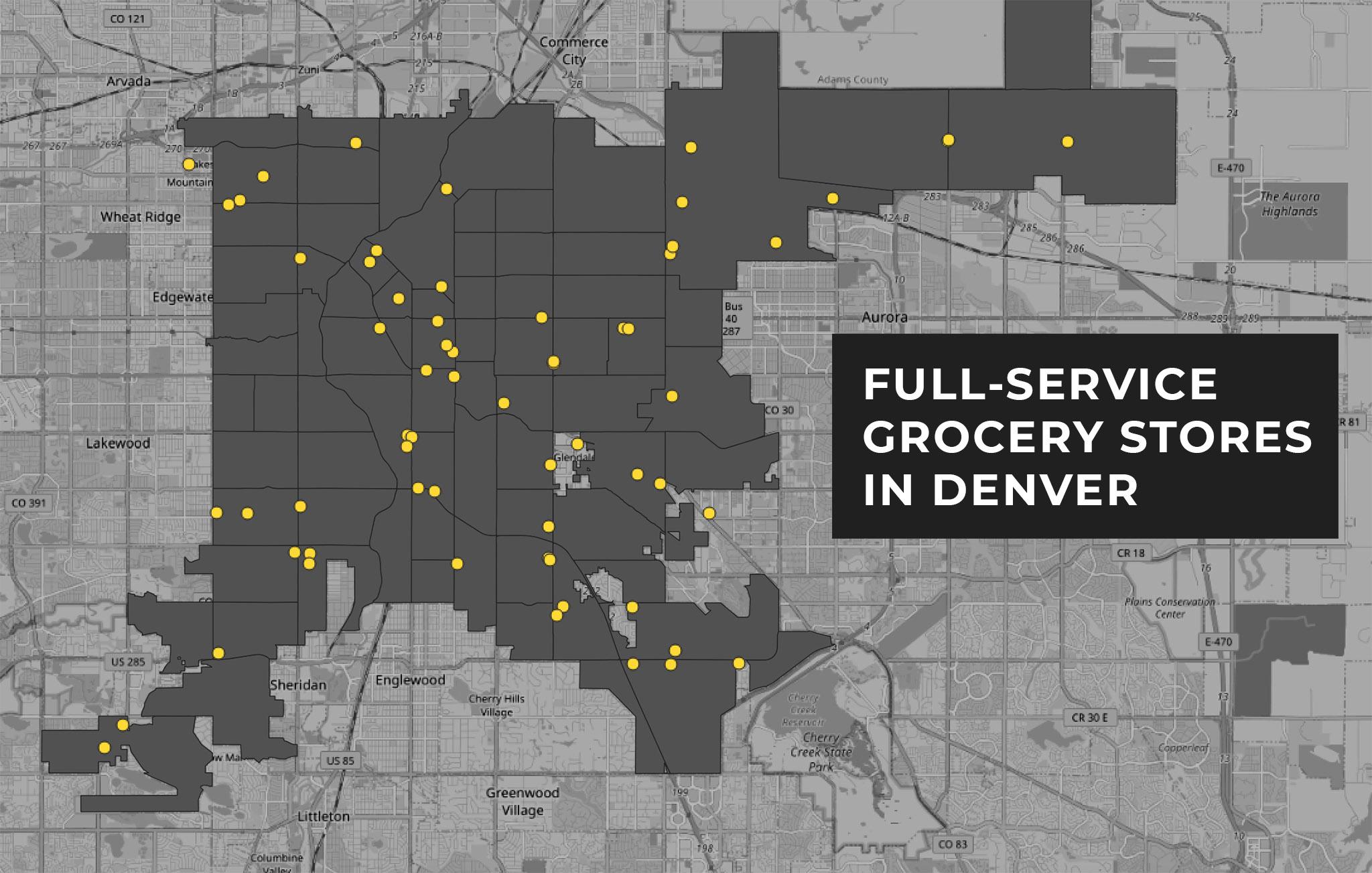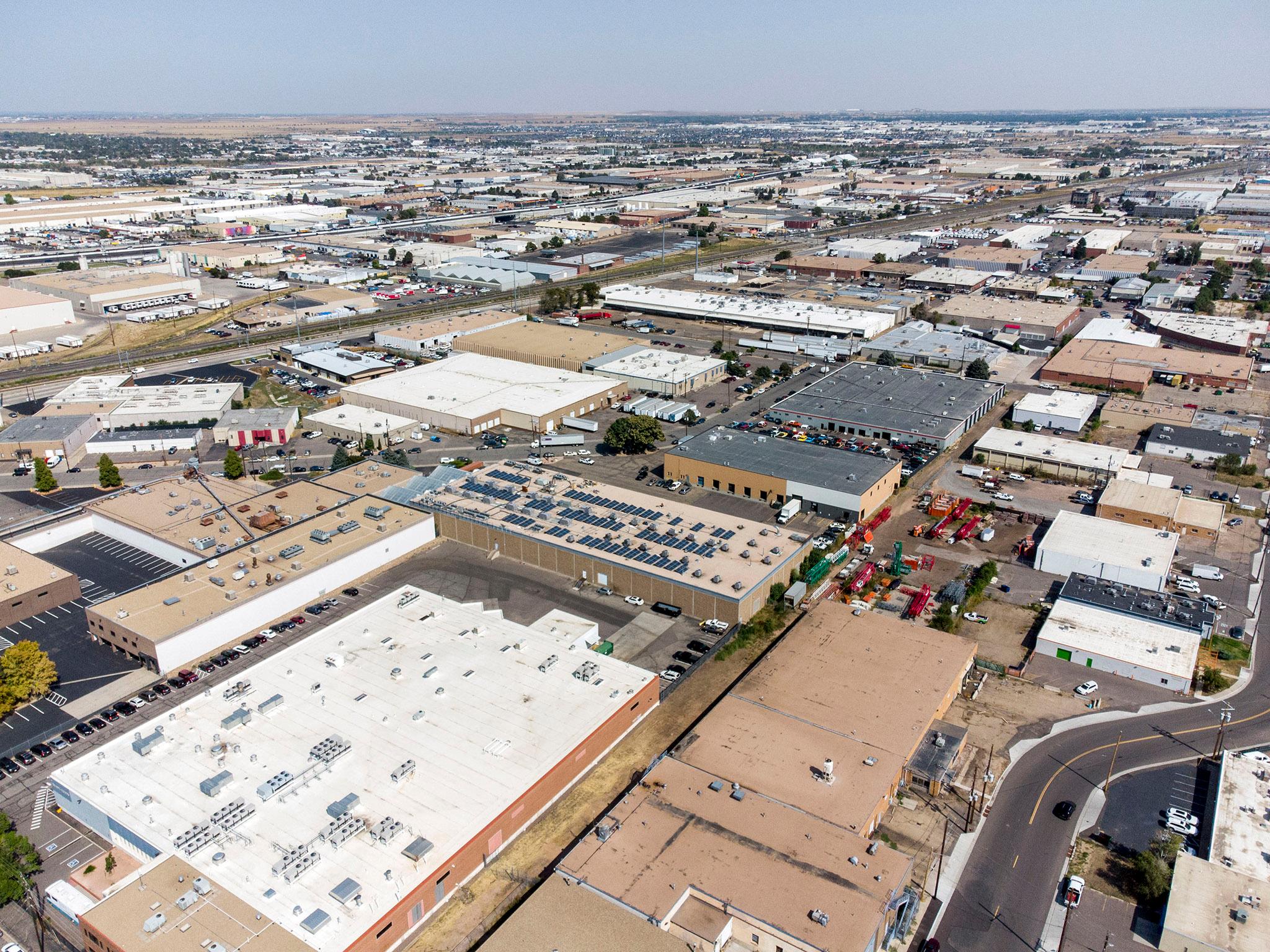Northeast Park Hill, a historic, diverse neighborhood with high rates of poverty is in one of the biggest food deserts in the city, right alongside areas like Sun Valley and Green Valley Ranch.
A market analysis ordered by the city in April found that the area does, indeed, have demand for a store. Longtime residents will remember the options that were once provided to the neighborhood through Black-owned businesses like the Holly Shopping Center and the Dahlia. But those haven't existed for decades now.
"It's been over 20 years ago or more, so it's very badly needed," Imam Abdur-Rahim Ali of the Northeast Denver Islamic Center said.

This city data, last updated in May 2021, shows all of Denver's full-service grocery stores. Food deserts are apparent in West Denver, Northeast Denver, and the neighborhoods near Denver International Airport. Predictably, this pattern also follow's Denver's infamous "Inverted L."
Since this data first came out, Sun Valley has opened Decatur Fresh Market and Green Valley Ranch has added a Costco. But things haven't changed in the neighborhood surrounding the old Park Hill Golf Course.
"There's such a source of contention when it comes to this neighborhood wanting a grocery," Evelyn Barnes, president of the Northeast Park Hill Coalition, said. "Frankly, it just doesn't make sense" to not have one.
The demand for a grocery store is also notable, since the neighborhood technically already has one: Park Hill Supermarket. The store has slowly been drawn into the debate around developing the defunct Park Hill Golf Course, and parties on either side paint drastically different pictures of what the supermarket has to offer.
Representatives from Westside Investment Partners, the developer that bought the golf course land in 2019, say Park Hill Supermarket is a specialty restaurant supplier that's ill-suited to meet the needs of individuals or families.
But Save Open Space Denver, the group aiming to halt development of the defunct golf course, highlights very different aspects of the store, including its produce, its proximity to the golf course and the fact that it's family owned.
So does the supermarket cover the needs of its constituents?
For Barnes of the neighborhood coalition, the issue is not about whether the store is doing its job well. It's about having shopping options like other Denver neighborhoods.
"People definitely do want to have a choice in where they shop in our area, and I can tell you that it definitely has been a source of frustration for myself," Barnes said.
Denver's neighborhood planning and implementation manager, Sarah Nurmela, explained that cities can only do so much to incentivize the building of grocery stores. It's largely up to market conditions whether a national grocery chain finds an area attractive. And said chains are not exactly keen on sharing their methods, which Nurmela said can often involve non-intuitive factors like analyzing household education levels.
The city does have a number of tools to attract stores at its disposal, like tax incentives and investing in nearby developments. In other cases, such as in Decatur Fresh Market in Sun Valley, the city can take matters into its own hands and work directly with partners like the Denver Housing Authority to provide food options.
According to the city's market analysis, national grocery stores cited neighborhood demographics and the northern industrial areas as big barriers to establishing new locations.
The report then went further: "Even though this demand analysis would indicate that there is grocery store demand, many stores remain uninterested, assuming that shoppers will travel."
The bottom line: Unless the city or the community intervenes, the market will continue to dictate the options of Northeast Park Hill residents.












